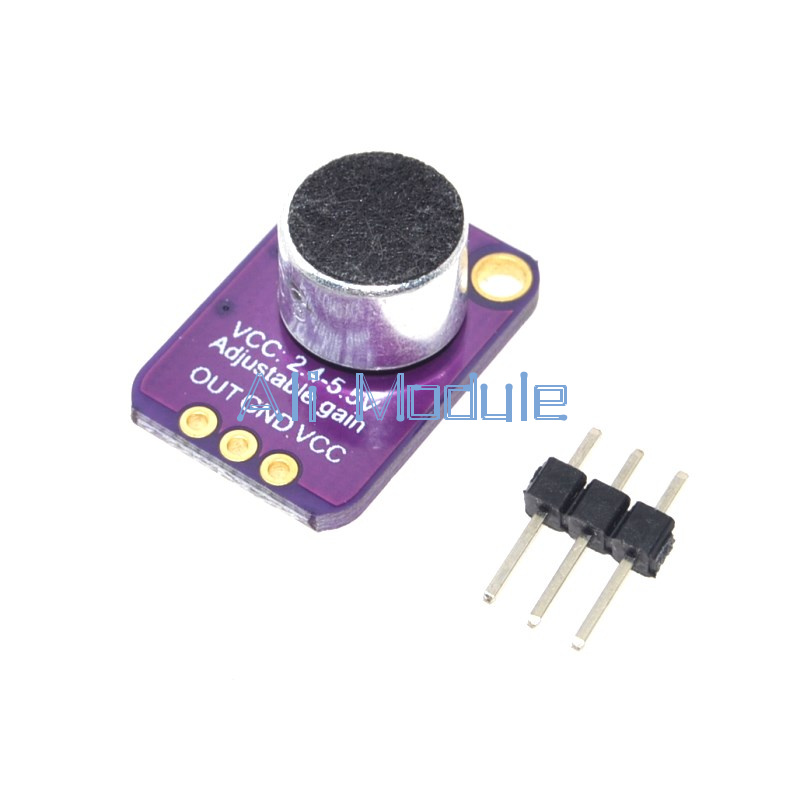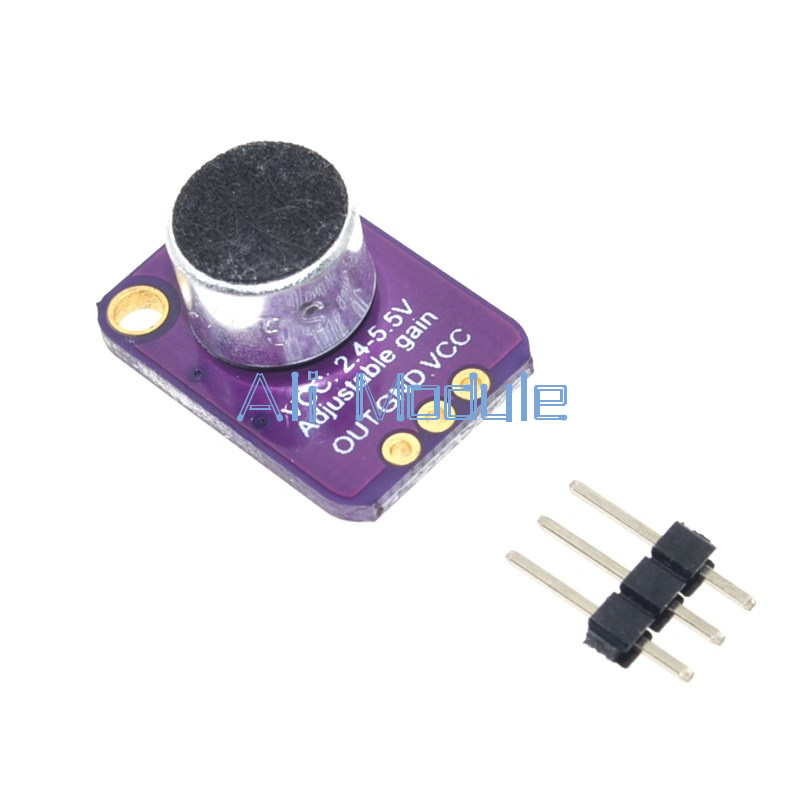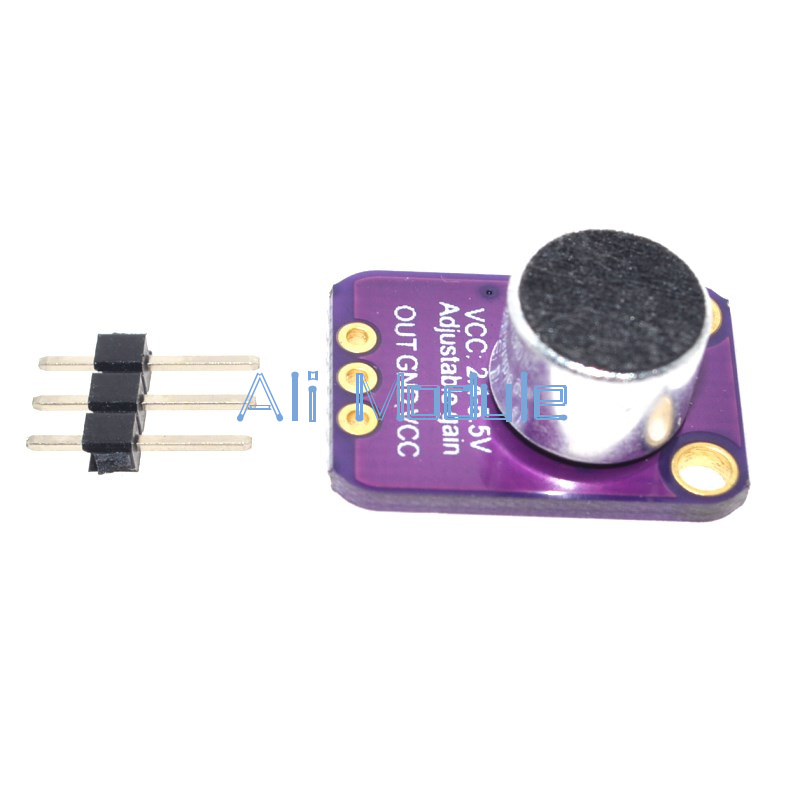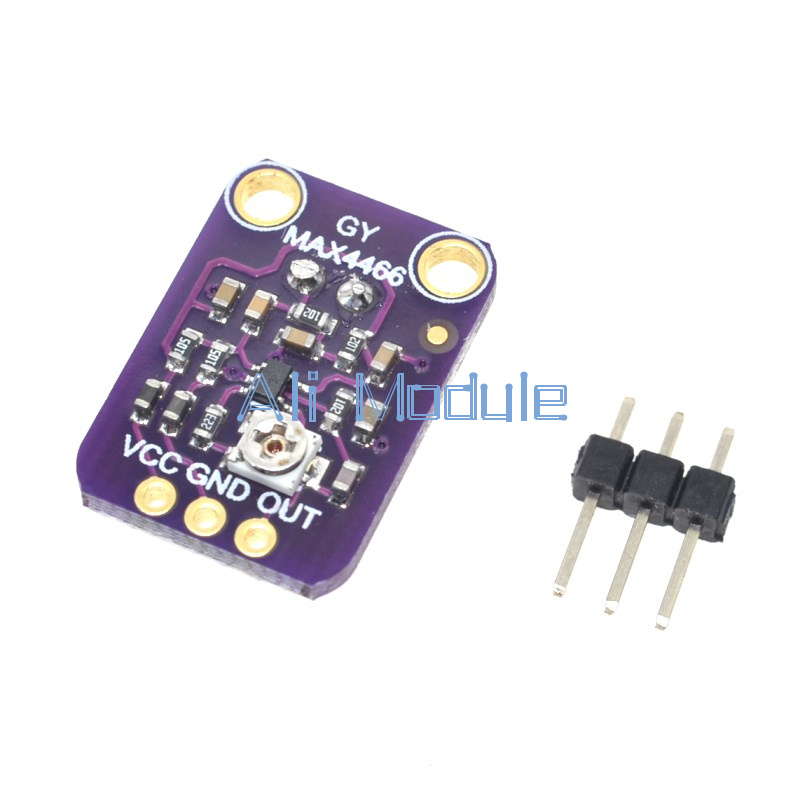



tested board comes with a 20-20KHz electret microphone soldered on. For the amplification, we use the
Maxim MAX4466, an op-amp specifically designed for this delicate task! The amplifier has excellent power
supply noise rejection, so this amplifier sounds really good and isn't nearly as noisy or scratchy as other
mic amp breakouts we've tried!
This breakout is best used for projects such as voice changers, audio recordingmpling, and audio-reactive projects that use FFT. On the back, we include a small trimmer pot to adjust the gain. You can
set the gain from 25x to 125x. That's down to be about 200mVpp (for normal speaking volume about 6"
away) which is good for attaching to something that expects 'line level' input without clipping, or up to
about 1Vpp, ideal for reading from a microcontroller ADC. The output is rail-to-rail so if the sounds gets
loud, the output can go up to 5Vpp!
Using it is simple:
Connect GND to ground, VCC to 2.4-5VDC.
For the best performance, use the "quietest" supply available (on an Arduino, this would be the 3.3V supply).
The audio waveform will come out of the OUT pin. The output will have a DC bias of VCC/2 so when its
perfectly quiet, the voltage will be a steady VCC/2 volts (it is DC coupled). If the audio equipment you're using
requires AC coupled audio, place a 100uF capacitor between the output pin and the input of your device. If
you're connecting to an audio amplifier that has differential inputs or includes decoupling capacitors, the
100uF cap is not required.
The output pin is not designed to drive speakers or anything but the smallest in-ear headphones- you'll need
an audio amplifier (such as 3.7W stereo amp) if you want to connect the amp directly to speakers. If you're
connecting to a microcontroller pin, you don't need an amplifier or decoupling capacitor - connect the OUT
pin directly to the microcontroller ADC pin.
For audio-reactive projects, we suggest using an FFT driver library which can take the audio input and 'translate' it into
frequencies.
We maintain high standards of excellence and strive for 100% customer satisfaction! Feedback is very important. We request that you contact us immediately BEFORE you give us neutral or negative feedback, so that we can perform up your satisfaction. Then we will improve our service immediately.
It is impossible to address issues if we do not know about them.
1. We ship to Worldwide.
2. We only ship to confirmed PAYPAL address; your PAYPAL address must match your Shipping address.
3. Any non-received items caused by invalid address registered on PayPal are not in our full refund or replacement policy. Shipping fee has including the local handing and packaging fee.
4. All the items will be shipping within 1-2 working days after receiving the payment, except some holidays.
5. We will not be responsible for any custom delay or tax, because transit time is highly depended and provided by postal Service.
6. If you have any problem, please contact us via message, we will reply message within 1-2 working days, please wait for patient.
- We only accept payment through Paypal.
- Items will go to post within 1-2 business days after payment confirmed.
If you can't receive the product within 2 months (60 days), please contact with us,we promise to payback 100% of your money.
We ensure our products work normally before post.If the products is broken before arrival to you,all you should do is taking a photo to show us our broken product.We promise to payback 100% of your money.
On 13-Mar-21 at 06:05:10 GMT, seller added the following information: